Former President Says Iran And US Nearly Went To War Three Times

Iran and the United States went to the brink of war three times during the Presidency of Donald Trump, Iran’s former president Hassan Rouhani has disclosed.

Iran and the United States went to the brink of war three times during the Presidency of Donald Trump, Iran’s former president Hassan Rouhani has disclosed.
Rouhani, speaking to the central council of the Moderation and Development Party this week, said that the first instance was when Iran shot down a US RQ-4A Global Hawk BAMS-D surveillance drone over the Persian Gulf in June 2019.
“On the day an American drone was targeted in the Persian Gulf, the Americans threatened us, and various messages were exchanged, ultimately, war was deliberately avoided,” Rouhani was quoted as saying by local media.
The second instance was when drones and missiles hit an oil facility in Saudi Arabia in September 2019, when Iran and its Houthi proxy forces in Yemen were blamed for the attack.
The third time Iran and the US went to the brink of war, Rouhani said, was when a US air strike killed Iran’s top extraterritorial military and intelligence operator, Gen. Qassem Soleimani in Baghdad on January 3, 2020. Iran retaliated by firing ballistic missiles at bases in Iraq hosting US forces five days later.
Rouhani stated that “They were saying that if you attack our forces, we'll target 52 points in Iran. However, we precisely targeted Ain al-Asad [air base], which was a planned operation. In total, we managed to pass through three phases of the war with the United States during the Trump era.”
Former President Donald Trump pulled out the Obama-era JCPOA nuclear accord in May 2018 and imposed tough economic sanctions against Iran, known as ‘maximum pressure’ policy.
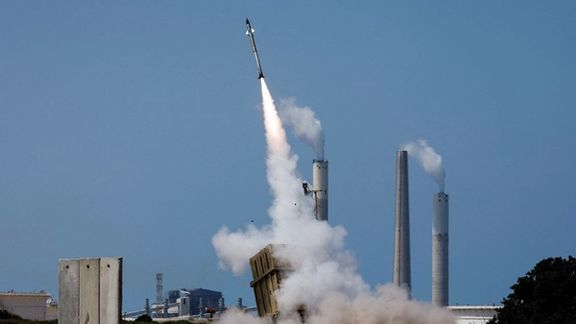
Yemen's Houthis, armed by Iran, launched ballistic missiles at Israel’s southernmost city Eilat on Tuesday, in what could signal the expansion of the Gaza war.
The Houthi rebels officially entered the Israel-Hamas war Tuesday, when their military spokesman announced that they had launched several ballistic missiles and drones aimed at Israeli targets.
“The Yemeni Armed Forces confirm that this operation is the third operation in support of our oppressed brothers in Palestine,” Brig. Gen. Yahya Saree said in a televised statement. “We will continue to carry out more qualitative strikes with missiles and drones until the Israeli aggression stops.”
The Houthis are yet another militant group backed by Iran. They’ve been effectively in a state of war with Saudi Arabia since 2015, and have claimed support for Palestinians since the Hamas terror attack on Israel on October 7.
The missile attack once again raises concerns that the war between Israel and Hamas could potentially involve other regional actors and set the whole Middle East ablaze.
Hezbollah in Lebanon published a third video of its leader Hassan Nasrullah on Tuesday, setting off another round of speculation that Hezbollah may be planning to declare war on Israel Friday.
Hassan Nasrullah is scheduled to speak at 3pm local time that day.
Tasnim News, a website affiliated with the IRGC, claimed on Tuesday that “America has sent messages to Hezbollah” to discourage them from entering the war with Israel.
The report is impossible to verify. It quotes “a senior source” from Hezbollah: “We made it clear that our duty is to be in the field, military, organizational, or intelligence. We’ll act with no warnings when it’s necessary. ”
The Houthis in Yemen, Hezbollah in Lebanon and Hamas and Islamic Jihad in Palestine are all part of an unofficial alliance that the Islamic Republic likes to call “the Axis of Resistance.”
It includes other groups in Iraq and Syria, which have also been busy targeting US forces in those countries.
On Tuesday, U.S. Secretary of Defense Lloyd Austin said in the last two weeks there had been at least 30 rocket and drone attacks “by Iranian-backed militias” against American troops in Syria and Iraq.
“[These] attacks must stop or else the United States will not hesitate to respond and protect its people,” Austin said.
The United States has deployed aircraft carriers to throw its weight behind Israel and deter the spread of the war. Iran has also expressed its desire to prevent the war from escalating further. However, Iranian Foreign Minister Hossein Amirabdollahian indicated that Tehran's proxies may take additional actions.
"They won't wait for anyone's advice,” he said “if the situation gets out of control, no party will be safe from its consequences."
Israel’s military says it has intercepted Houthi missiles and drones. Many experts say that attacks at this scale are more about sending a message than posing a significant military threat. However, concerns arise if a full-scale engagement erupts, potentially overwhelming Israel's air defenses.
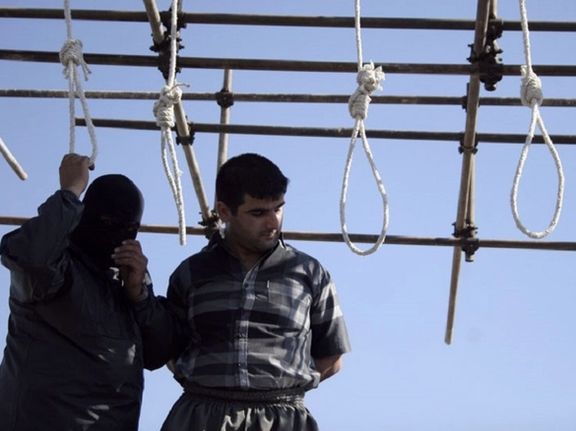
At least 78 prisoners have been executed in Iranian prisons during the past month.
The alarming statistic revealed by Hengaw Human Rights reveals a shocking 65% increase compared to the previous month of September, when 27 executions were recorded.
On average, the death penalty has been administered to five prisoners every two days, further highlighting the severity of the situation.
The majority of the executions, totaling 35 cases, were related to inmates charged with drug-related offenses. This represents a significant portion of the total number of prisoners executed in October.
The statistics also reveal a disturbing pattern in the types of prisoners executed. In October, at least 18 Baluch prisoners, making up 23% of the total number of executed prisoners, had their death sentences carried out. Additionally, four Kurdish prisoners, four Turkish prisoners, and five Afghan nationals were also subjected to the death penalty.
The executions were not evenly distributed across the country. The highest number of cases, 22 in total, took place in Alborz province prisons. Ten executions were carried out in Kerman province, eight in Fars province, six in South Khorasan province, five in Esfahan (Isfahan), and four in Gilan. Other provinces reported the remaining cases.
The majority of prisoners executed in September were convicted on charges related to drug offenses, accounting for 45% of all cases, totaling 35 individuals.
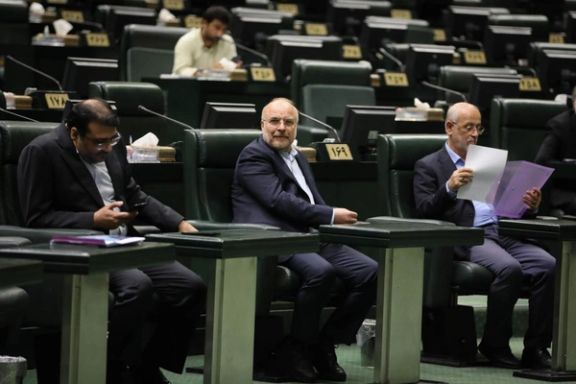
A prominent conservative commentator suggests that Iran's parliamentary speaker Mohammad Bagher Ghalibaf stands a chance to win the presidential election in 2025.
Naser Imani, stated in an interview with Tehran’s Khabar Online website that voters in Iran are likely to favor Ghalibaf to incumbent President Ebrahim Raisi. This shift comes as many traditional conservative politicians around Raisi have distanced themselves from him.
Imani pointed out that the reason for this departure of conservatives from Raisi's camp is due to his appointments of hardliners, including members of the ultraconservative Paydari Party, to key positions in his government. While many conservatives initially supported Raisi during and immediately after the 2021 presidential elections, their opinion changed after observing his government's performance over the past two years.
This dynamic casts more doubt on Raisi's political future, especially considering the revealed rivalry with Ghalibaf. Raisi appears concerned about Ghalibaf's parliament and its efforts to tarnish his image and question his efficiency as Iran's executive body chief.
Imani further noted that hardliners surrounding President Raisi continue to influence appointments within his administration. He said: "I wish Raisi was careful enough not to use radical elements at managerial levels in his government."
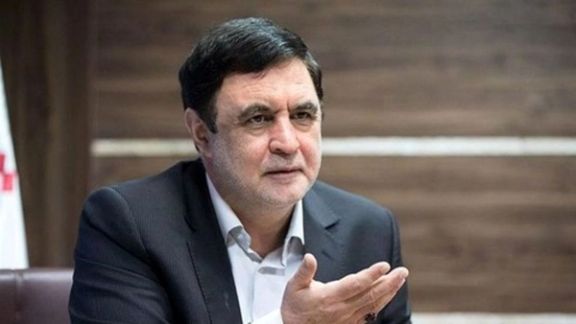
However, he appreciated the fact that although Raisi is deeply annoyed by criticism, he has rarely officially filed complaints against his critics.
Imani said: "One of the differences between Iran's reformists and conservatives is that the conservatives bravely criticize their likeminded politicians and governments." He added, "Currently conservatives criticize Raisi's economic, social and cultural policies, but most of their criticisms are directed toward the hardliners he has appointed to key posts in his government."
Speaking about Raisi's own situation in Iran's current political landscape, Imani said the biggest challenge Raisi is currently facing is about whether to take part in the Assembly of Experts election in March 2024 as a candidate from Tehran or Birjand in Khorasan Province.
Raisi's concerns stem from the need for a substantial number of votes in Tehran compared to far fewer votes required in a smaller city like Birjand. His popularity among major clerics and their followers will significantly impact his electability.
The same issue is also valid for former President Hassan Rouhani, another Assembly of Experts member, and his choice about whether to run from Tehran or Semnan. In the previous rounds, both politicians were in good standing to run from the capital but none of them can be sure about their electability after massive anti-government protests in 2022 and 2023 that revealed people's disillusionment regarding Iranian clerics.
Regarding Raisi's political future considering Ghalibaf's rising popularity, it's important to note that Supreme Leader Ali Khamenei holds the final say in most matters in Iran. If Khamenei wishes to keep Raisi in power for another term, he can exert his influence over the Guardian Council to ensure they do not endorse Ghalibaf's qualification as a presidential candidate. The Guardian Council has a history of disqualifying notable figures, and Ghalibaf may face a similar fate.
The body that has previously disqualified big shots such former pragmatist President Akbar Hashemi Rafsanjani and former populist President Mahmoud Ahmadinejad is not likely to come across any problem to kick out someone like Ghalibaf regardless of his ties with the IRGC and Khamenei's household.
On the other hand, If Ghalibaf is fortunate, Khamenei may not be so keen to keep Raisi in power, particularly because replacing him with Ghalibaf will not be seen as a defeat for Khamenei, but a change of pawns at the right time.

Jailed Iranian women's rights activist Narges Mohammadi has smuggled out a letter of thanks for her Nobel Peace Prize awarded earlier this month.
Saying it marked a turning point in "empowering protest and social movements worldwide," Mohammadi said, "I am grateful to all of you and urge you to support the people of Iran until the final victory."
"Victory is not easy, but it is certain."
In the letter smuggled out of prison and read by her daughter Kiana in a video posted on the Nobel website, Mohammadi said the news of her Nobel prize had been met with cries from her cellmates of "Woman, Life, Freedom", the slogan of the movement of which she is part. It was the first official reaction from Mohammadi to her winning the prestigious award.
The imprisoned women's rights advocate won the 2023 peace prize on October 6 in a rebuke to Tehran's theocratic leaders and boost for anti-government protesters, while also drawing the Islamic Republic's swift condemnation.
Mohammadi is serving multiple sentences in Tehran's Evin Prison amounting to about 12 years imprisonment, one of the many periods she has been detained behind bars, according to the Front Line Defenders rights organization.
Charges include spreading propaganda against the state.
Tehran, which has called the protest movement in Iran a Western-led subversion, accused the Nobel committee of meddling and politicizing the issue of human rights in the wake of the decision to award Mohammadi the peace prize.
Mohammadi said she was sending greetings and gratitude to the Nobel Committee on behalf of what she said were 46 women prisoners of conscience and political prisoners held at Evin.
Arrested more than a dozen times in her life, and held three times in Evin since 2012, Mohammadi has been unable to see her husband for 15 years and her children for seven.
"The strength of this movement lies in the agency of Iranian women. We assuredly know what we want far better than what we do not want," she said in the letter, the text of which was also published on the Nobel website.
"We believe in it, commit to it, and are certain of victory!"
(Report by Reuters)
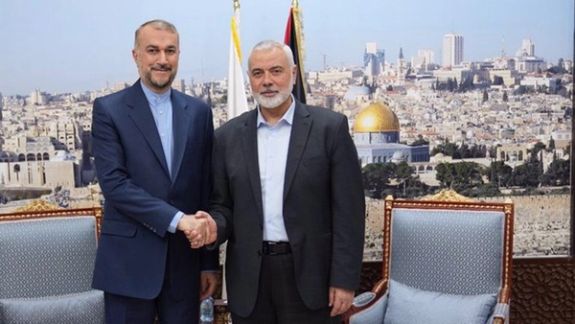
The Foreign Minister of Iran has held a meeting with Ismail Haniyeh, the head of the political office of Hamas Islamist militia group, in the Qatari capital Doha.
The meeting followed separate talks that Hossein Amir-Abdollahian had with the Emir and the Prime Minister of Qatar on Tuesday. It was the second official meeting between Iran and Hamas since the group, designated as a terrorist group by the US and several other countries, declared war against Israel.
Hamas launched the assault on October 7 with a barrage of at least 3,000 rockets launched at Israel and vehicle-transported incursions into its territory. Palestinian militants breached the Gaza–Israel barrier, targeting both military and civilian populations in neighboring Israeli communities. This included attacks on military bases, nearby towns, and even a music festival near Re'im. Over 350 Israeli soldiers and police officers, as well as more than 1,000 Israeli civilians, lost their lives during the wave of violence, with around 200 civilians and soldiers being taken as hostages to the Gaza Strip, among them, approximately 30 children. Israel has been pounding Gaza in retaliatory fire that has killed thousands of Palestinians.
Iran has expressed its full support for Hamas throughout the conflict and has issued warnings to the United States. Iran's leadership has stated that if the Israeli offensive against Hamas does not cease, it could escalate, potentially impacting American interests in the region.
Amir-Abdollahian, in a speech at the United Nations on Thursday, said that US forces in the Middle East would not be immune to the repercussions if the Israeli offensive against Hamas continues.